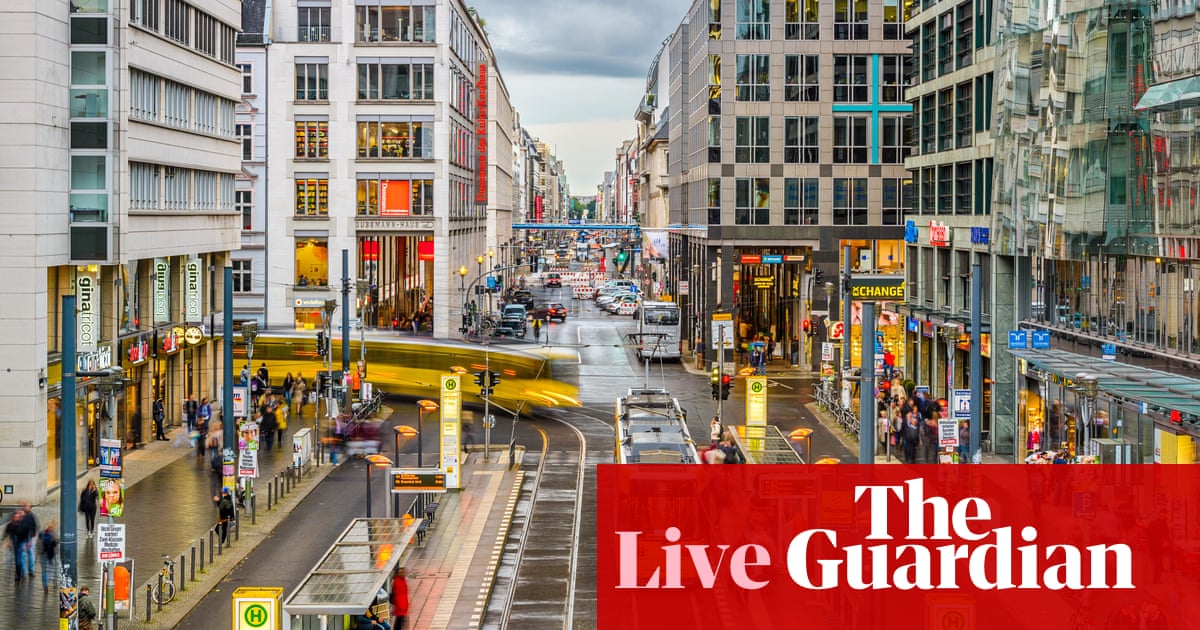
And finally, Wall Street has closed at its highest level in seven weeks.
Stocks were lifted by the Fed’s commitment to act appropriately to protect the US economy from the Covid-19 recession, and by optimism that economies will recover as lockdowns are eased soon.
The Dow has ended the day at 24,633 points, up 2.2% or 532 points.
Fed: What the experts say
Here’s some reaction to the Federal Reserve’s interest rate decision, and Jay Powell’s press conference.
Seema Shah, Chief Strategist at Principal Global Investors, said:
Powell acknowledged that the economic devastation has been a deliberate policy choice, and therefore the central bank must do whatever it takes to reduce the economic pain.
“Certainly, Powell made a convincing attempt to reassure financial markets that the Fed will not look to tighten financial conditions prematurely just because equities are rallying....
“Powell’s own statement provided a very sobering assessment of the economic impact, acknowledging that this will not just be a short, sharp shock but a more prolonged event that will continue to weigh heavily on the global economy over the medium term.
Ronald Temple, Head of US equity, Lazard Asset Management:
“Today the Fed acknowledged that the devil is in the details when it comes to injecting massive liquidity into the corporate sector. In the three weeks since announcing $2.3 trillion of liquidity through seven facilities, the Fed has only lent $8 billion through one of them, the Paycheck Protection Program Liquidity Facility.
Anna Stupnytska, head of global macro at Fidelity International:
“The Fed’s messaging makes it clear that while the Committee considers its current policy stance including the numerous lending programmes sufficient for now, they are ready to intervene further if needed. Given the extreme uncertainty about the outlook which largely depends on the virus trajectory with many moving parts - including any breakthroughs on therapeutic treatments, vaccines, testing and tracing technologies- it is hard to predict if or when the Fed will have to expand the scope of some of its programmes in the future.
“But with the recovery likely to be sluggish and patchy, with social distancing measures potentially remaining in place for another 12-18 months, we think there will be a need for further action over the next few weeks - this would include increasing the size of some facilities, changing their terms as well as possibly creating new ones to provide assistance to specific sectors such as housing.”
And finally... Jerome Powell assure his audience that the Fed is in no hurry to raise interest rates, and will be very patient.
Jerome Powell is then challenged about the ‘moral hazard’ issue -- isn’t the Fed trying to keep asset prices up?
Powell insists that the Fed just wants to ensure markets are functioning properly... rather than seizing up.
[Fair enough...except markets only seem to be misfiring when asset prices start falling sharply...]
On the other hand.....
Powell: Don"t worry about the deficit
Fed chair Jerome Powell has brushed aside concerns that the US budget deficit is going to soar due to the cost of fighting the coronavirus pandemic.
Powell stirringly insists that the priority is to use the “great fiscal power of the United States” to support the economy through the crisis.
Then in time, perhaps “reasonably soon”, policymakers can think about a long-term way to get America’s fiscal house in order, he tells reporters.
Jerome Powell cautions that there is even more uncertainty over the economic outlook than usual.
But we do know some things.
In the short term, the US faces a sharp contraction in economic activity, high unemployment, and lower consumer spending and business investment, he explains.
But then the economy will start to recover. We don’t know when that will happen, but it could be in the third quarter of 2020 and it could be a rapid bounceback - but probably not back to pre-crisis levels quickly.
However, Powell also points to the risk of a second wave of infections, and is unwilling to speculate on exactly how the recovery would pay out.
Looking ahead, Jerome Powell warns that it will take “some time” for US unemployment to return to more normal levels.
So the Fed is not in any hurry to withdraw its current support for the economy, he insists.
Here’s a clip of Jerome Powell pledging to keep helping the US economy recover from the Covid-19 crisis.
Jay Powell is then challenged for not taking enough risks to help the US economy.
Q: Why is the Fed focusing its help on firms who they’re confident can repay loans - surely they need help less?
Under US law, the Fed can’t lend to insolvent companies, Powell explains.











